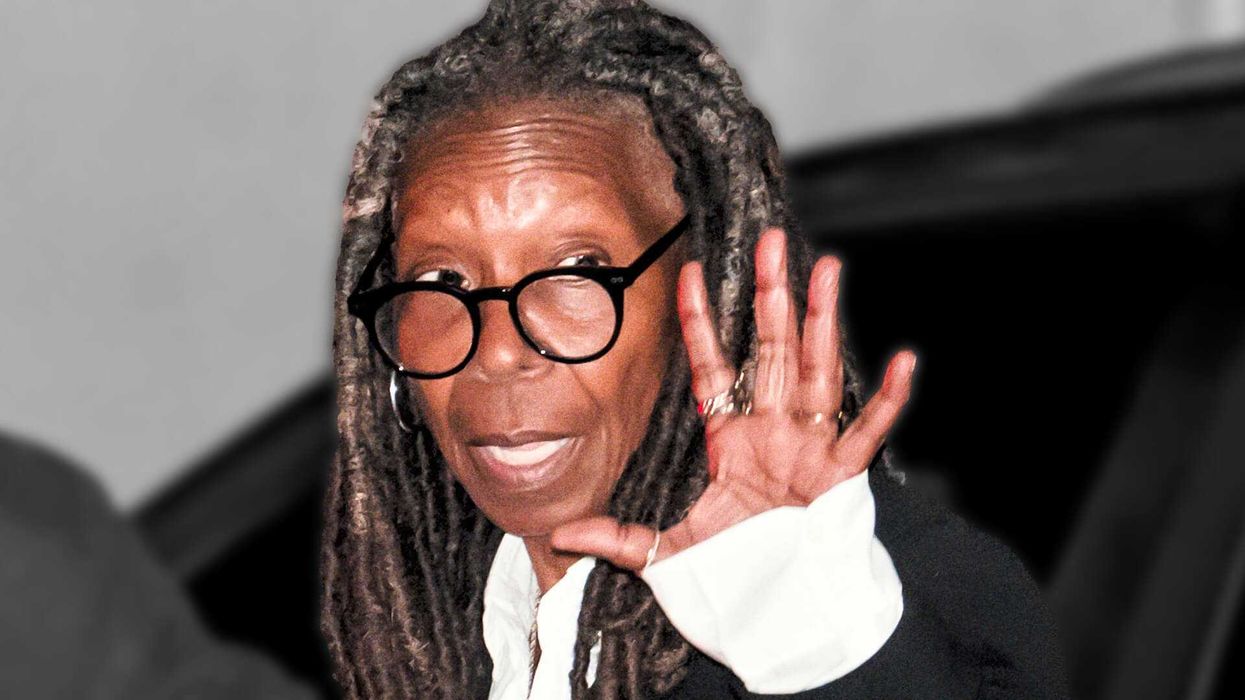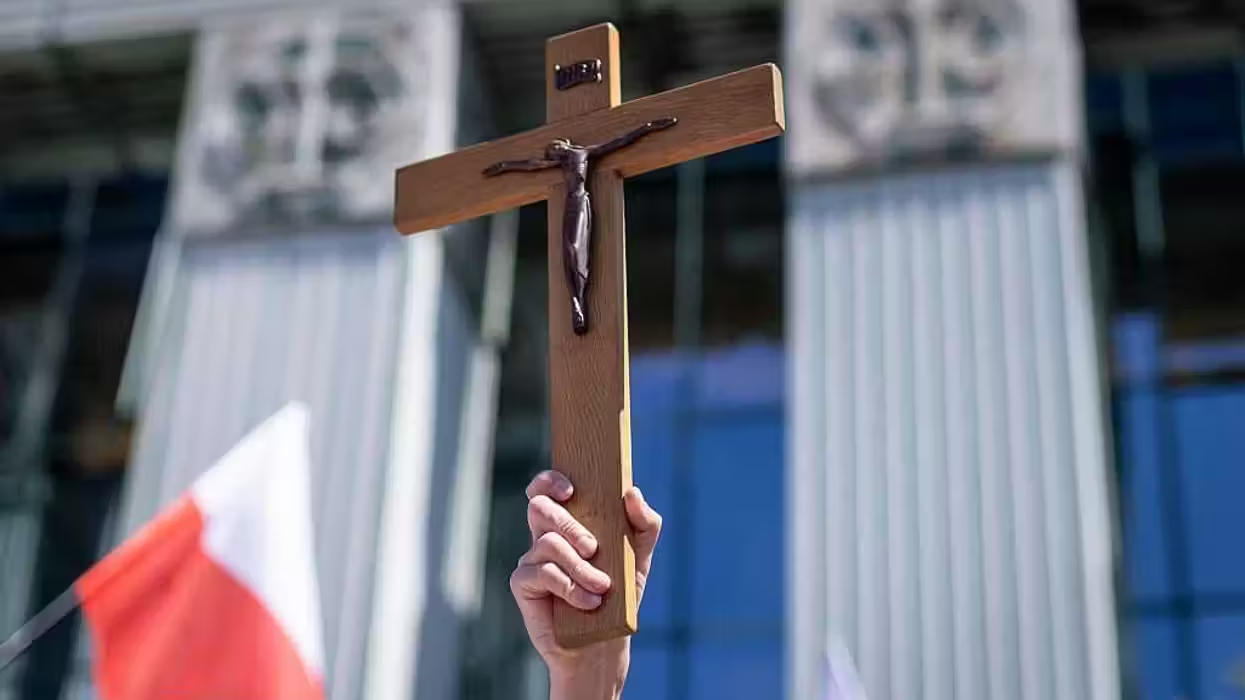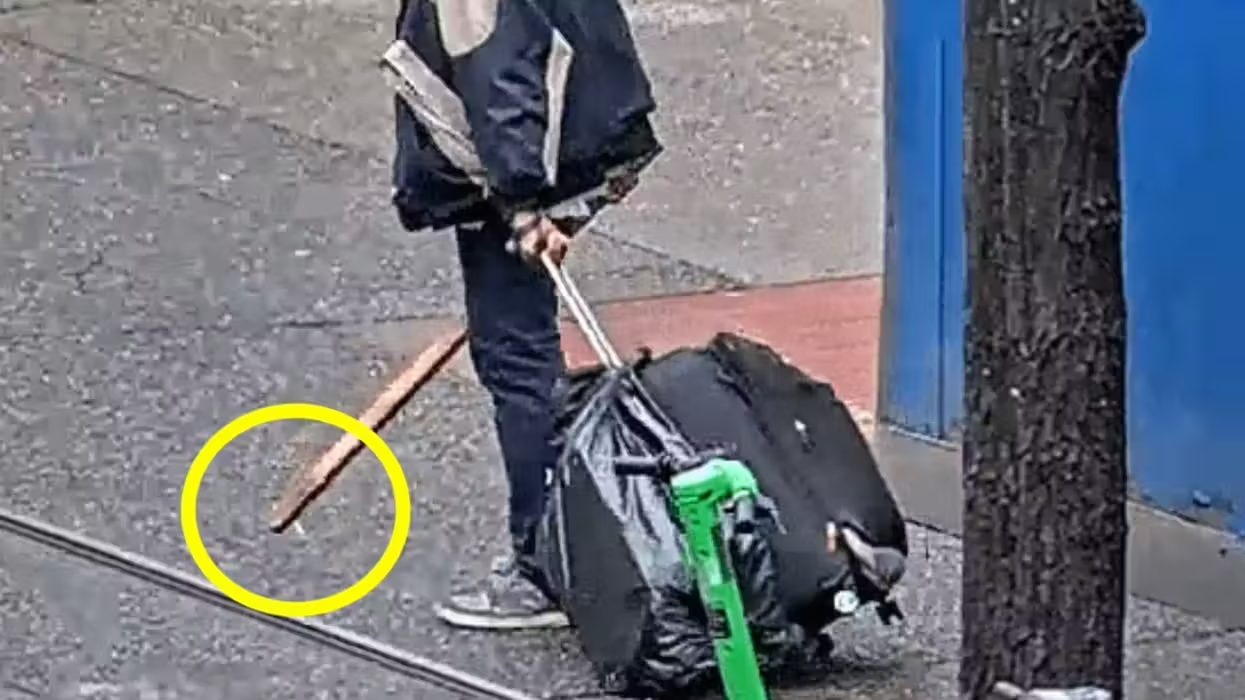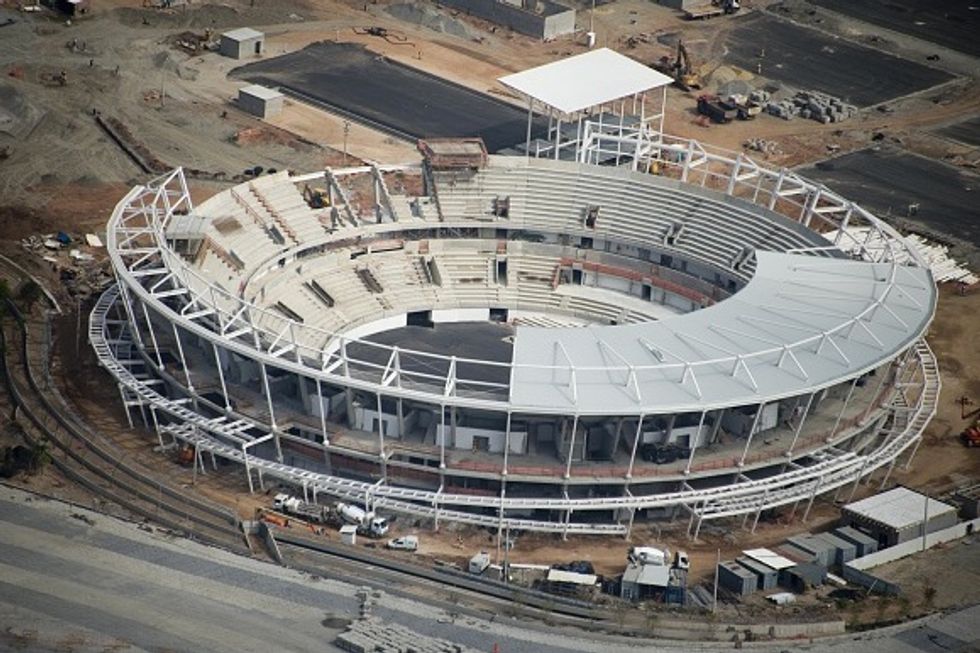
© 2025 Blaze Media LLC. All rights reserved.
Woman Who Returned to Rio to Watch It Transform for the Olympics Describes How It's Been a 'Process of Slow Disappointments
August 04, 2015
"It could have been a very good moment."
When Juliana Barbassa learned Rio de Janeiro was chosen to host the 2016 Olympics Games, she was thrilled at the opportunity her Brazilian hometown was granted.
After more than 20 years living abroad, Barbassa returned as an Associated Press correspondent to observe how the city handled hosting the World Cup first in 2014 and how it prepared for the 2016 games.
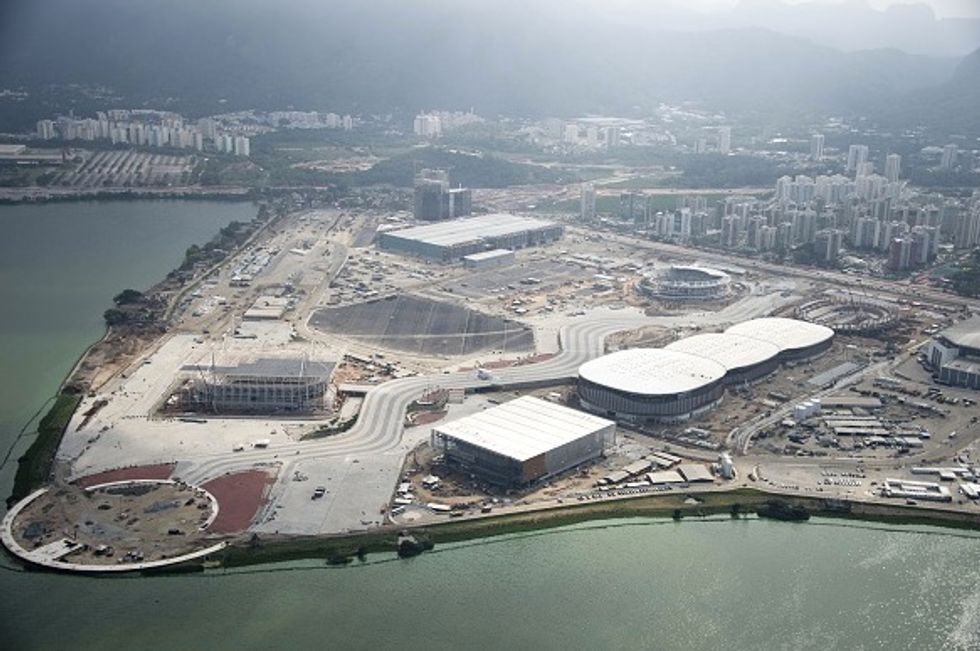
The last five years in the city though, overall, has been a "process of slow disappointments," she told TheBlaze in a phone interview.
When Rio de Janeiro was announced as the host city for the summer games in 2009, Barbassa, living in San Francisco at the time, said it was the cherry on top of a whole host of good news the city was experiencing.
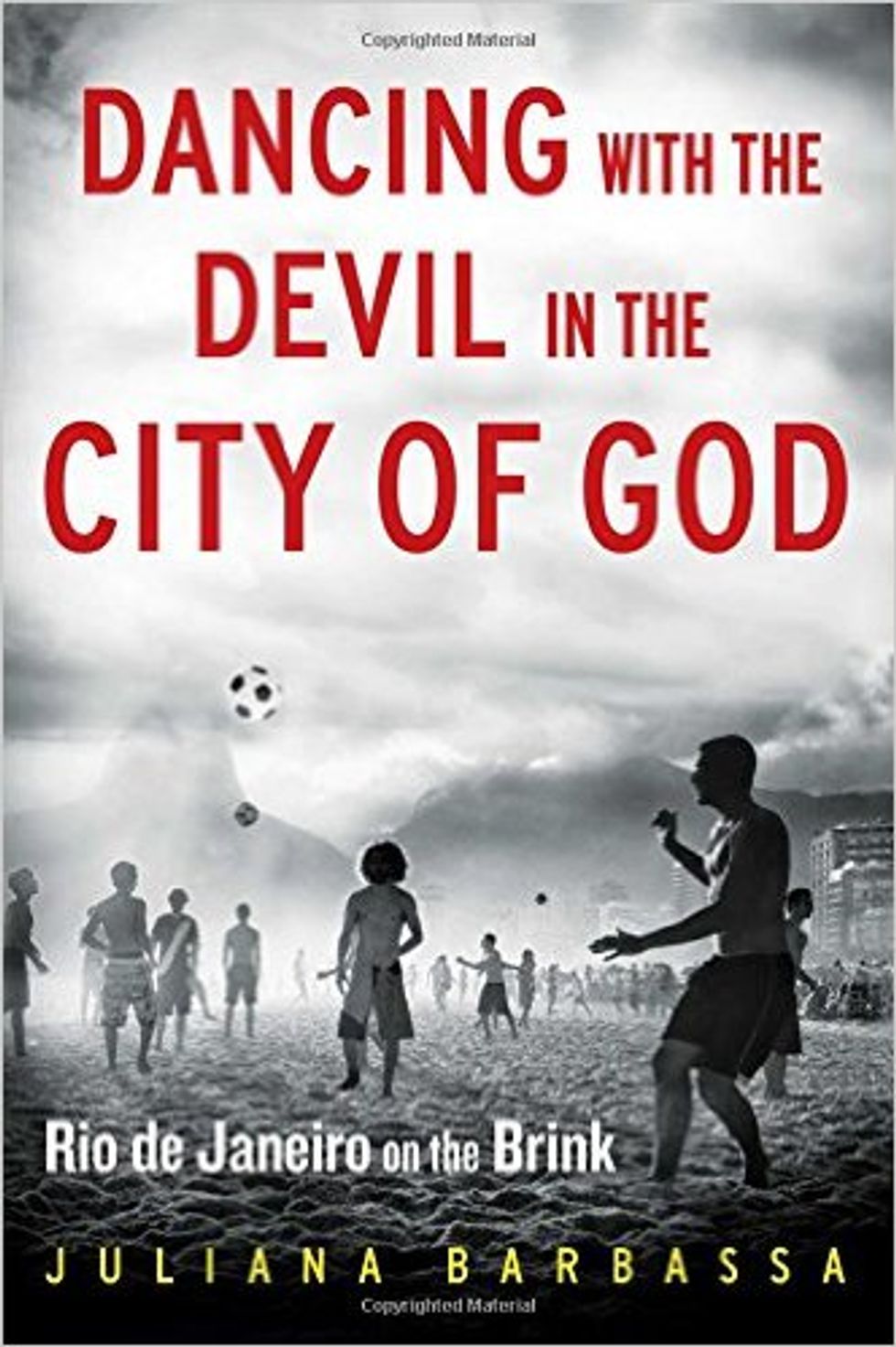
In the years that followed her moving back, Barbassa, who recently published "Dancing With the Devil in the City of God: Rio de Janeiro on the Brink," said she has watched the city change, but not always for the better.
"Physically the city has been transformed. There are new transportation routes, the subway being extended, but then you get into things that are not so great," she said.
Not long after Rio was announced as the 2016 Olympic host, Mayor Eduardo Paes announced the removal of 119 favelas. According to O Globo at the time (translated via Google Translate), reasons provided by the city's housing department included "being in sliding risk areas for flood, environmental protection or for public places." Barbassa added that authorities also cited the low-income communities as being dangerous.
She countered though that this reasoning seemed to be based on superficial studies or no studies at all. It seemed, at least to Barbassa, that the impending World Cup and Olympics — and all the trappings that came along with these major events — were the driving reason for pushing these communities out.
"In some cases it was very clear," she said. "A community right next to the big stadium that hosted the final of the World Cup ... the community right next to that one was raised. The community next to where the Olympic park will be is about 90 percent demolished."
"You began to see that the real motivation behind the transformation," she continued. "It wasn’t necessarily the welfare of community or even things that are necessary for the games. The games served as excuse to push through changes that stakeholders wanted."
And Barbassa isn't the only one who has taken note. On a larger scale, in 2013 Brazil saw its largest anti-government protest.
“We pay a lot of money in taxes, for electricity, for services, and we want to know where that money is,” said Italo Santos, a 25-year old student, said at the time.
Barbassa said the public's "good will toward [playing host city for the World Cup and Olympics] started to diminish" when they saw resources going into projects that were not going to benefit the public in the long run.
One example is the ongoing issue the city seems to be having with proper sewage infrastructure. An investigation by the Associated Press garnered worldwide attention last month when it found the water swimmers and boaters faced in Rio was so contaminated with raw sewage that athletes could become debilitating ill.
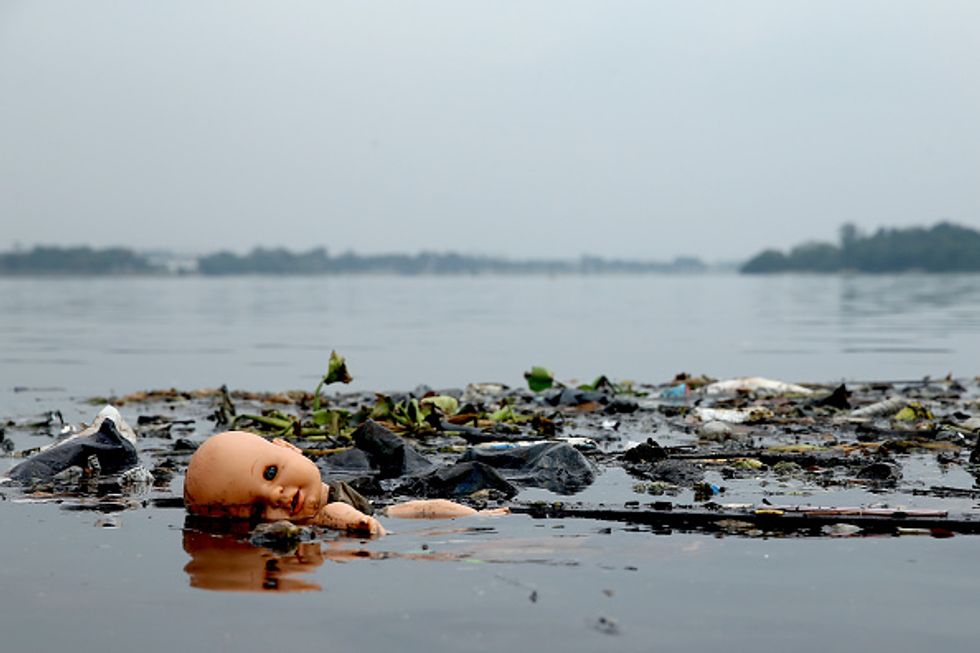
Overall, Barbassa said, "I don't think the Olympics coming to Rio were very positive."
"It could have been a very good moment for Rio and it was misspent in a way," she said.
"When you have a big event like that and you superimpose it on a city, it doesn’t do good things for the city’s urban planning," she said. "There's not only actual cost but there’s an opportunity cost."
Barbassa added that the scale of the games is an issue as well.
"The Olympic Games — independent of where they’re held — they’re getting bigger and bigger every year. It’s reached a point of crisis," she said. "Western cities where the population has a voice ... those cities are not as interested in the Olympic Games."
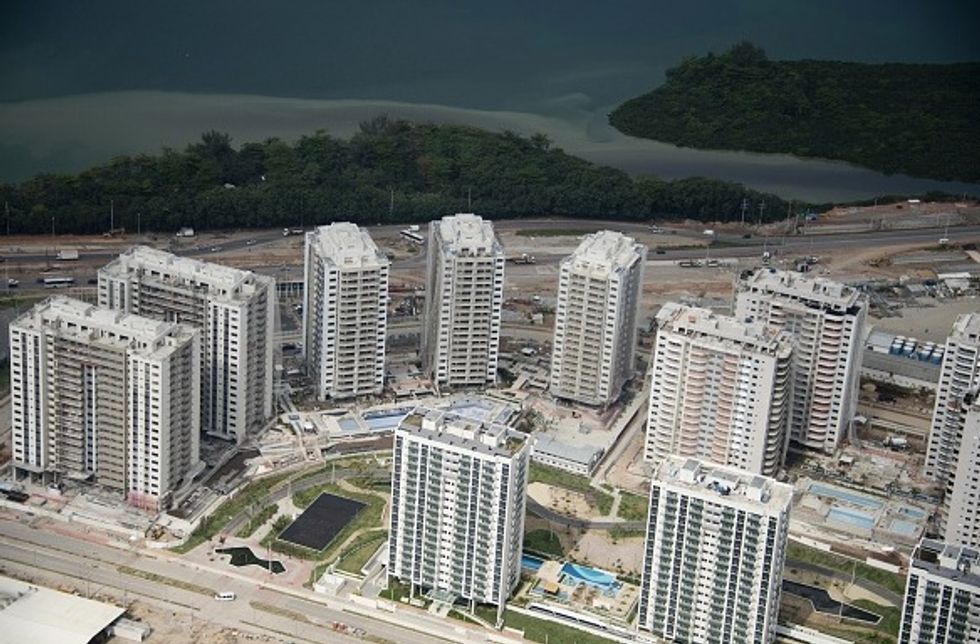
Take Boston, for example, which dropped its bid for the 2024 games last week.
"If they learn how to manage things around here then maybe we can go for something. But until then, everything they seem to do throws us further and further into the hole," Boston resident Jerome Howard told NPR at the time.
As for what visitors can expect of the games next year, from a safety stand point, Barbassa said she thinks the event will be well controlled.
"They announced [last week] the biggest security operation in Rio's history," she said, adding that while the city is notoriously violent, such crime is usually far from tourist centers.

But even this addition of more police and security for the games can have unintended consequences.
"Rio is widely known as violent place and part of that violence is the Rio state police," Barbassa said. "When you have these events ... and you arm them, you give them more weapons, more scope in the city, then the events are over and you’ve got this heavily armed force with little accountability in a culture of violence. You just wonder what is the legacy of the city. When the games are over, what will be left for residents?"
Then, Barbassa went on to say that despite the Olympics exacerbating many of the problems in the city, Rio, as a whole, is "a fantastic place to visit."
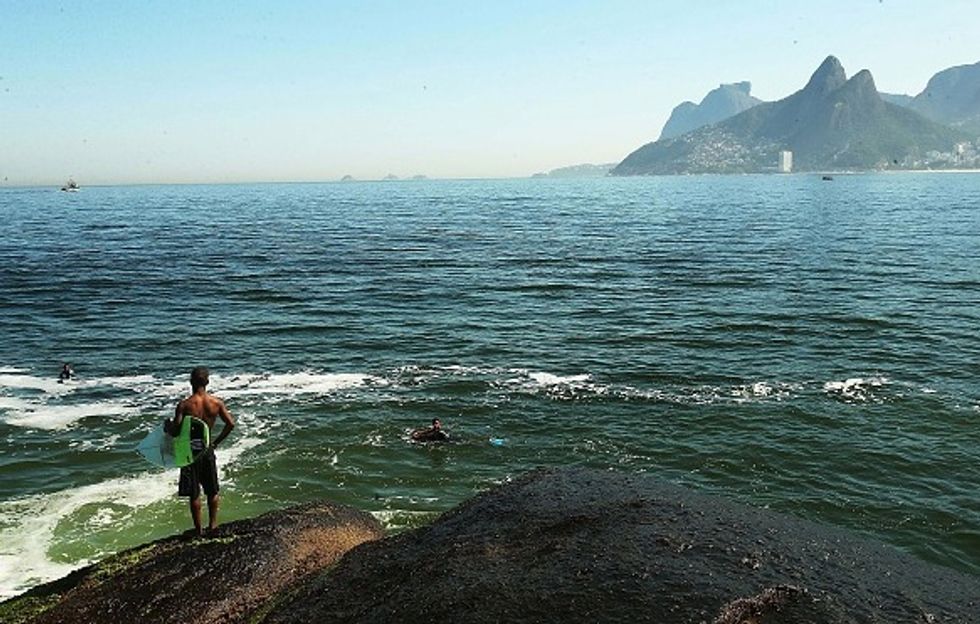
"One thing doesn’t stand necessarily in the way of the other. Living there can be difficult and covering it as a journalist you’re aware ... but when you visit Rio and you have your hotel and you’ve got miles of white-sanded beaches and a population of people that live outside ... there's a liveliness and effervescence to the city."
Listen to Barbassa talk about her book and her perspective on Rio de Janeiro in this video:
Want to leave a tip?
We answer to you. Help keep our content free of advertisers and big tech censorship by leaving a tip today.
Want to join the conversation?
Already a subscriber?
more stories
Sign up for the Blaze newsletter
By signing up, you agree to our Privacy Policy and Terms of Use, and agree to receive content that may sometimes include advertisements. You may opt out at any time.
Related Content
© 2025 Blaze Media LLC. All rights reserved.
Get the stories that matter most delivered directly to your inbox.
By signing up, you agree to our Privacy Policy and Terms of Use, and agree to receive content that may sometimes include advertisements. You may opt out at any time.

